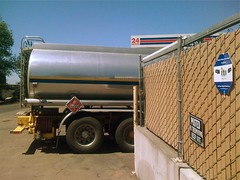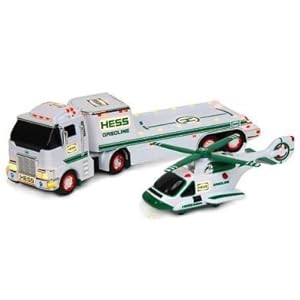Gas Versus Diesel RV's
This article discusses an age old question and one I get asked a lot, should I buy gas or diesel? This question has fueled many a heated debates too. Sometimes this question involves a truck that will be used to tow a trailer, and other times it involves what type of motorhome to purchase. A universal response you could expect to hear to this question goes something like this: Diesels cost more. Don't buy a diesel unless you plan to put a bunch of miles on it and keep it for a long time. That's the only way you can justify the extra cost of diesel.
Gas Versus Diesel RV's
Gas Versus Diesel RV's
Gas Versus Diesel RV's
Gas Versus Diesel RV's
Several years ago there was some truth to this somewhat typical response. But things are changing, especially when you're talking about motorhomes. Today, the cost of some gasoline powered motorhomes is about the same asmany of the entry-level diesel motorhomes available on the market. This higher cost is mainly due to advancements in gasoline RV chassis ' design; Gross Vehicle Weight with greater Ratings (GVWR) to accommodate coach designs with 3 and 4 slideouts. And don't forget to factor in the new technology in gasoline engine and transmission design over the past several years.
The old response, of diesels costing more, does hold true with some of the specialized diesel chassis manufacturers, but it's not just the engine that accounts for these higher prices. You are moving to a much higher plateau across the board. For the most part gasoline RV chassis ' are heavy duty truck chassis ' modified for Recreation Vehicle use, whereas many chassis ' are a diesel bus chassis.These bus chassis ' have even greater GVWR 's, air brakes, air ride suspension systems, transmissions, rear mounted larger diesel engines and more. They handle better, ride better and cost more. I always say you get what you pay for.
Other than the cost factor between gas and diesel motorhomes, what are we really talking about when it comes down to gas versus diesel? Say for example in a truck you want to use to pull a trailer. This is where we need to factor in the engine itself. This is also where torque and horsepower come into the equation.
Explaining torque and horsepower can get extremely technical, and we want to keep this simple and easy to understand. With that said, torque is basically the force or energy required to move something. Torque is the measurement of force,and force is measured in reference to a twisting or rotating shaft. In English terms torque is measured in pounds-feet, but is more commonly referred to as foot-pounds. So in keeping it simple let's just say that torque can be thought of as the amount of turning force it takes to move one pound of weight the distance of one foot.
Torque can be multiplied through gear ratios. You have probably heard that the higher the real axle gear ratio is the better the truck will tow. The axle ratio is the number of times the driveshaft must rotate to turn the rear wheels one time. If you have a 3.73: 1 axle ratio the drive shaft turns 3.73 times for each full turn of the axle. So in a sense torque really equals towing capacity.
Horsepower on the other hand is torque X RPM 's. Torque is howmuch work is being done, and horsepower is how fast you get the actual work done. What's interesting is an engine rated at 350 horsepower only produces that horsepower at a rated peak power RPM. This RPM rangand, for a gasoline engine, is often between 5.000 and 6.000 RPM 's. When an engine is idling the horsepower is significantly lower, and as the RPM's raise so does the horsepower. When you are towing a trailer the engine speed is more likely to be in the low to mid RPM range, 2.000 which means you probably have slightly more than half of the rated horsepower. Horsepower is measured by a dynamometer. A dynamometer puts a load on the engine and measures the amount of power the engine produces against the load at various speeds. In reality it is measuring torque in pound-feet andconverting it to horsepower. Even at the peak power RPM rated you won't really get the rated horsepower because a percentage is lost through auxiliary equipment on the engine and the process of getting it back to the wheels.
In a diesel engine the horsepower peaks at a lower RPM, and there is more torque at a lower RPM compared to a gasoline engine. This results in a diesel engine having much more power at a lower RPM, around the RPM range you will be towing at. This higher torque and higher horsepower at a lower RPM equates to better towing.
There are many other factors involved in the question of gas versus diesel that you will need to consider. What are the maintenance costs involved, cost difference between fuel types, fuel economy, your budget, and the resalevalue? Whether it's for a tow vehicle or motorhome, take your time and make a well informed decision when comparing gas to diesel.
If the question is which truck will tow more or which motorhome has more torque the diesel will win hands down, but I honestly have no complaints with our gas powered motorhome either. Especially when considering the price.
Q & A
Question: Why does a diesel engine have more torque?
Mark Says: Much of the reason is in the way the engine is designed. Internal combustion engines use spark from a spark plug to ignite fuel in the combustion chamber of a gasoline engine and the high heat from compression to ignite the fuel in a diesel engine. It's more difficult to burn diesel fuel diesel engines have sohigher compression ratios resulting in more heat to ignite the fuel and more power.
Question: I have always heard that a diesel engine is much louder than a gas engine, is this true?
Mark Says: If you asked me that several years ago the answer would have been yes, but newer diesel engines are actually very quiet.
Question: You said in the article on diesel motorhome rides better, why is that?
Mark Says: Most gas motorhome chassis ' leaf spring suspension systems use. With this suspension system you will experience things like "body roll and pitch." whenever pressure is exerted against one side of the motorhome. It can be caused by a gust of wind, a shift in weight while cornering, or a passing truck. The effects of sway on a motorhomeare increased because of the height and mass of the motorhome. Diesel chassis uses an air ride suspension system. These systems keep the chassis adjusted to the proper ride height at all times by adding and releasing air as required. And the way the system is designed eliminates the pitch and roll affect you get from leaf spring suspensions, resulting in a smoother riding motorhome.
Happy Camping,
Mark J. Polk
Copyright 2007 by Mark j. Polk, owner rveducation101.com
Gas Versus Diesel RV's



